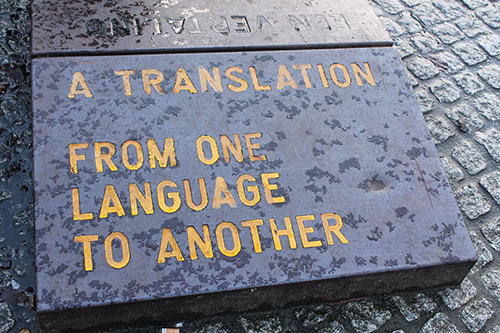| File Transfer | Print Page | 800 |
| File Transfer | Print Page | 800 |
 The terms “translation” and “interpretation” are often interchanged in conversation but in the language industry, each term is very particular. When one interprets, he or she is facilitating the oral communication between two people. When one translates, then they are converting written text from one language to another.
The terms “translation” and “interpretation” are often interchanged in conversation but in the language industry, each term is very particular. When one interprets, he or she is facilitating the oral communication between two people. When one translates, then they are converting written text from one language to another.
Interpreting and translation are often not performed by the same people. The difference in skills, training, aptitude and even language knowledge are so significant that few people can do both successfully on a professional level. This is especially true in the realm of legal translations, where a single miscue can skew an entire legal proceeding.
The process of legal translation is not necessarily straight forward and can contain obstacles not only from a language perspective but from institutions, culture and legislation ones as well. Quite often, an institution that exists in one legal system does not exist in the other, or the same word means different things in different legal systems where lawsuits are filed.
The legal system of a given country reflects that country’s culture and that culture is conveyed in language. Therefore, it is far more critical to have someone working on legal translations who not only understands the language and how to do a straightforward translation, but who understands the culture of that other country and what the translation really means in legal terms.
“Colleagues, customers and clients don’t always speak the same language,” says Robert Santiago III, chief operations officer of Para-Plus Translations. “We can manage effective translations for 124 distinct languages, from Afrikaans to Yoruba and from Ga to Mongolian.”
“That is not all,” adds Carlos Santiago, vice president of Para-Plus. “Our interpreters understand the nuances of the law from the context of a particular language. They make that vital insight a part of the services we offer to clients in New Jersey and Delaware.”
When selecting a legal translator, you need to be sure to find someone who:
The importance of a legal translation service that provides clear, on-mark translations in lawsuits can be the difference between winning and losing in court.
